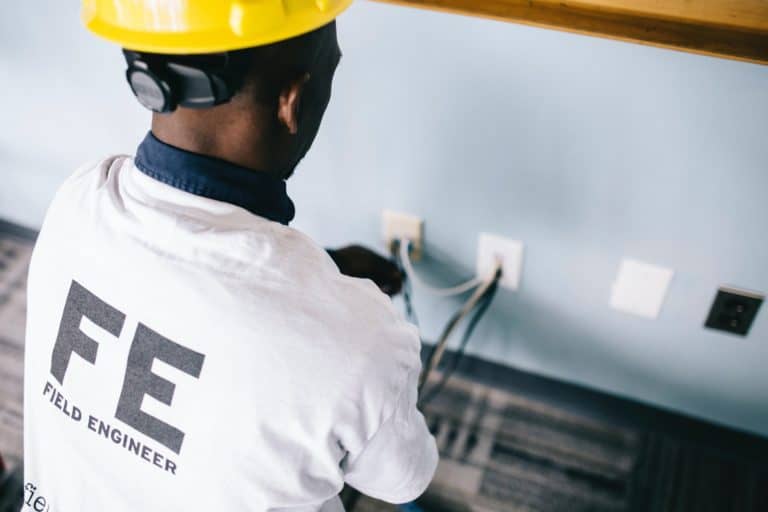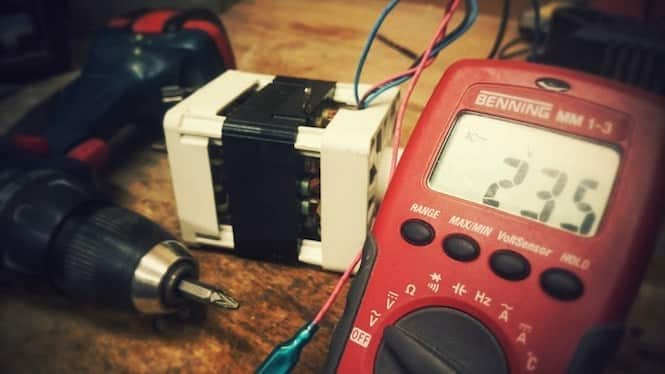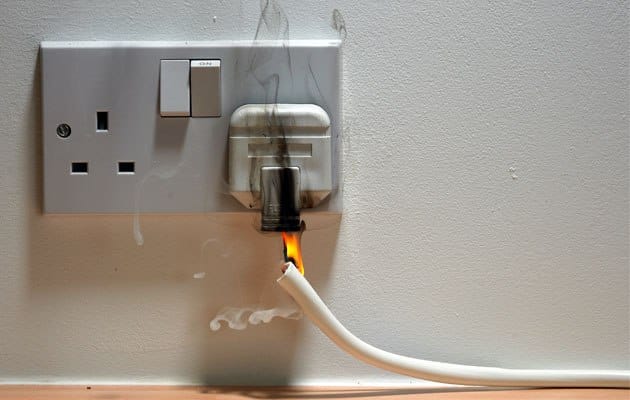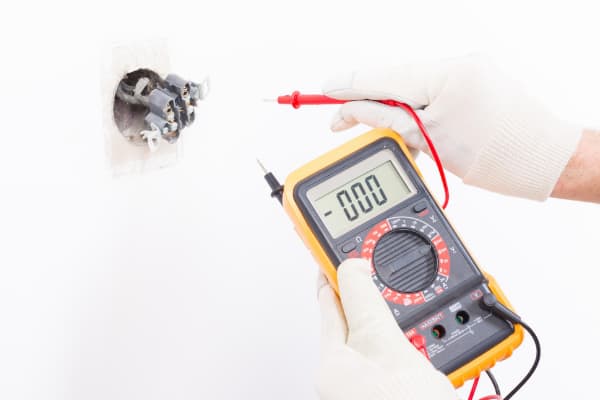Find My Local Expert How To Safely Identify Electrical Faults...
Read More
7 Common Electrical Issues in Your Household
Electrical issues in and around the home are particularly worrisome, because they are often invisible. When a water pipe bursts, you can clearly see the water coming out of the pipe. When a gas pipe bursts, you can hear and smell the gas. If an electrical wire becomes exposed, you can see that it is exposed if you are looking at it, but there won’t be any obvious signs to draw your attention to the problem. And, to make matters worse, while water and gas carry dangers of their own, they won’t actually injure you on contact. Not so with electricity.
Of course, there are other ways in which electrical problems can be dangerous, and several ways in which it can be frustrating and annoying. Whether a plug that constantly blows fuses, a circuit in your house that keeps tripping breakers in your fuse board, or any number of other minor or major symptoms that can arise.
Identifying electrical issues is hard enough when you are an experienced electrician, so as you can imagine, it’s quite difficult when you don’t have that experience. Still, knowing what the most common electrical issues in the home look like will go a long way to helping you figure out what your problem is. While there are always issues that are out of the ordinary—perhaps even unique—the vast majority of electrical issues found around the home will be one of the 7 common electrical issues listed below.
Before we get into this, remember; electrical systems are dangerous, both to your property and your safety. If you do not know what you are doing, you should attempt to work on anything electrical in your home. This post is intended to help you identify certain electrical issues, not repair them.
7 Common Electrical Issues in the Home
Now, to the issues themselves. We have picked 7 of the most common electrical issues found around the home, but it is worth remembering that this is by no means a definitive list of all the electrical issues you might encounter. There are certainly other issues that are less common, and to further complicate matters, there are less common electrical issues that can look like some issues in this list. It is important to remember that this is just a guide to give you an idea of what might be happening.
Now, with that out of the way, let’s get to our 7 common electrical issues in the home!
1. Constantly Tripping Fuse Board
Your fuse board is your ultimate defence against an electrical problem turning into a serious issue that could result in property damage, injury, or worse. It achieves this by way of breakers and RCDs, which you can think of as gateways that stop the electricity from getting into your property. Most electrical problems cause a sudden change in the amount of electricity being used, and breakers detect this change and cut the power entirely. This should happen so quickly that any potential injury is averted.
Your home’s electrical systems will be divided up into several circuits. For example, your lighting fixtures should be on a circuit of their own, while your electrical outlets may be on one circuit or split into more than one. Big ticket appliances like electric ovens should be on a circuit all to themselves.
This compartmentalisation of the breakers should help a little in working out where the issue might be. For example, if the breaker responsible for your oven is constantly tripping, it’s reasonable to assume that the problem is with your oven or the wiring leading to it.
Generally speaking, this kind of problem is caused by a short in the circuit, which could happen because of water getting where it shouldn’t be, wires being severed, or appliances going faulty internally.
2. Flickering or Dimming Light Bulbs
If you are having issues with one particular light fixture, it will almost certainly be the light fixture itself, or the bulb it holds. If the light is controlled by a single switch that is not shared by any other lights, it could also be the switch. You might try changing the bulb before resorting to calling an electrician, just to rule it out.
However, if the problem is a bit more widespread, such as all the light fixtures in your home flickering or dimming, there is a much bigger problem. This is caused by fluctuations in the power coming into your house. It will likely be affecting other electrical systems, but they won’t show the effects as readily as a light bulb. For example, complicated electronics like TVs have transformers that take the power in and dole it out to the TVs systems evenly, so as long as enough power is coming in on average, the TV would keep working just fine. Light bulbs are much simpler, and dips in the power will immediately be evident there.
Your first course of action should be to try and establish if it’s just you, as this kind of problem can often be coming from the power grid itself. If your neighbours are not experiencing the same thing, however, you need to get an electrician out to look at your electrics.
3. High Electricity Bill
If you start getting higher than normal electricity bills when nothing much has changed in your usage, it could be a sign of something faulty. Faulty appliances—particularly appliances whose primary purpose is to produce heat—can end up using considerably more power if they are faulty, as they work less efficiently and use more electricity to achieve the same results. Common culprits for this kind of thing are electric heaters and immersion heaters.
The first thing to do here is make sure nothing about your usage has changed. Double check that someone else in the house hasn’t been leaving an electric heater on that you didn’t know about. If nothing has changed, call the electrician. You might also consider switching off any of the larger electrical appliances you can live without for a billing cycle to see if it makes a difference.
4. Damaged Outlets or Fixtures
The problem here is pretty self-explanatory. If you find yourself with a damaged electrical fixture, outlet, or switch, you should certainly get it repaired or replaced as soon as possible, and avoid using it in the meantime.
Damage of this nature can come in many forms, such as physical damage from some kind of impact, water damage from a spill or leak, or even just wear and tear on particularly old fixtures. Regardless of the cause, if you can see a fixture is damaged—or even if you just have reason to suspect it—get that fixture looked at before it hurts someone.
5. Humming or Spitting Noises From Electrical Fixtures
An important lesson to learn about home electrics is that no wires or fixtures should be making any kind of noise. Your kettle will make noise when it boils, and your vacuum cleaner makes noise when you use it, but under no circumstances should your electrical outlets, light switches and fittings, or your fuse board be making any noise.
If you hear humming or sparking noises coming from these things, don’t use them, and call an electrician straight away. If your fuse board is not the thing making the noise, you might consider cutting the power to the affected circuit until an electrician can get out to you.
6. Plugs Constantly Blowing Fuses
Any appliance made today in the UK should have a fuse in the plug. This fuse acts as an additional safety measure. Much like the breakers we mentioned above, the fuse’s job is to cut the power in the event of a problem.
If you find yourself going through a lot of fuses for a particular appliance, the first thing to do is make sure the fuses you are putting in are the correct rating for the appliance. If they are, you may be looking at a faulty appliance.

7. Complete Power Loss
Power cuts are not uncommon, unfortunately, but they’re often brief when they do occur. If you find yourself experiencing one, firstly check your local area. If your neighbours have power and street lights are working, you’re looking at something on your own property, and will need to get an electrician out to look at it. If the power is out in the area, however, it’s a job for the power companies. You can get in touch with them to make sure they’re aware of the problem, but other than that, it’s a matter of waiting for them to sort it out.

Hire An Expert!
There are very few things an unqualified, inexperienced person can do with home electrics without risking their safety. Many of the necessary tasks for dealing with the above problems would actually be illegal for an uncertified electrician to tackle—or they would have to get the work signed off by a certified electrician afterwards at least.
In short, don’t risk your safety and the safety of those you live with. Call the professionals.
You May Also Like...
Guide on Electrical Inspection and Testing
Find My Local Expert A Guide about Electrical Inspection and...
Read MoreElectrical Fault Finding
Find My Local Expert Understanding Electrical Fault Finding An electrical...
Read More7 Things You Can Do Before The Emergency Electrician Arrives
Find My Local Expert 7 Things You Can Do Before...
Read More5 Reasons Why Your Appliance is Tripping the Fuse Board
Find My Local Expert 5 Reasons Why Your Appliance is...
Read MoreHave your Electrics Inspected Today!
My Trusted Expert Guarantee
Experts Have Been Vetted & Approved




